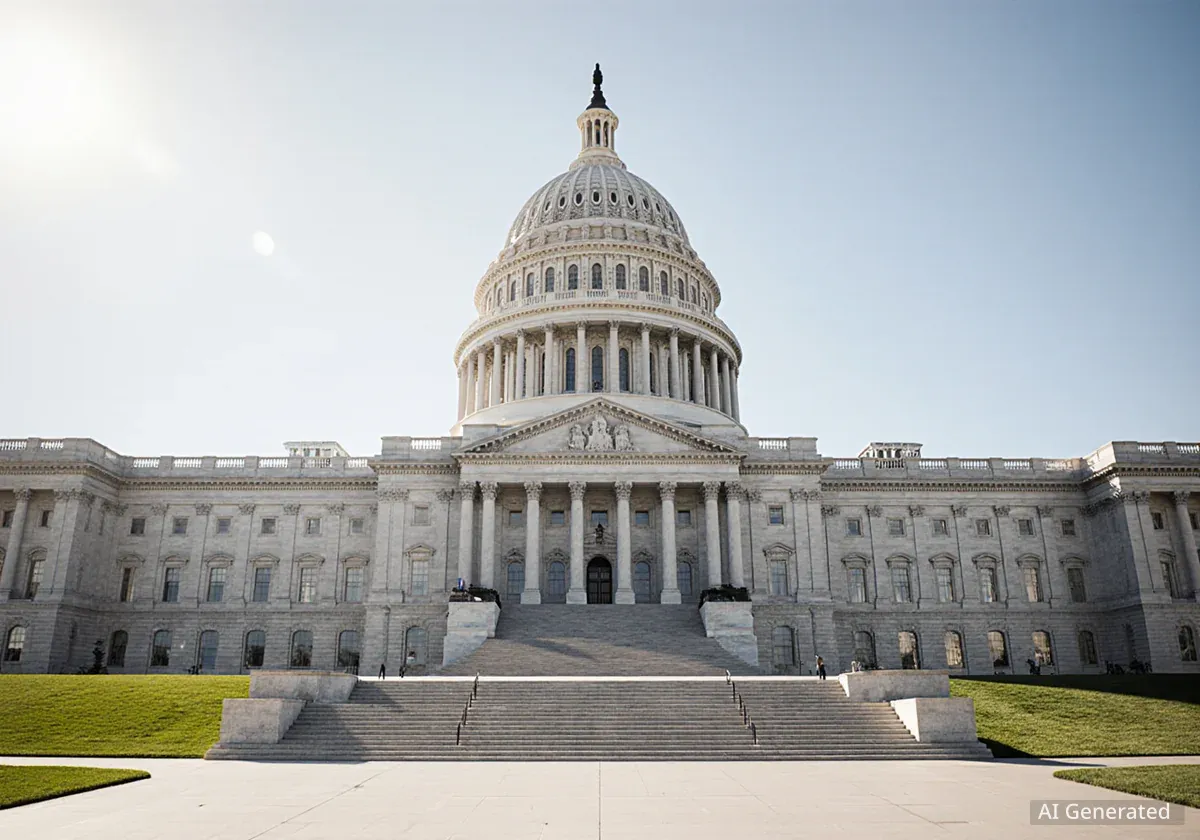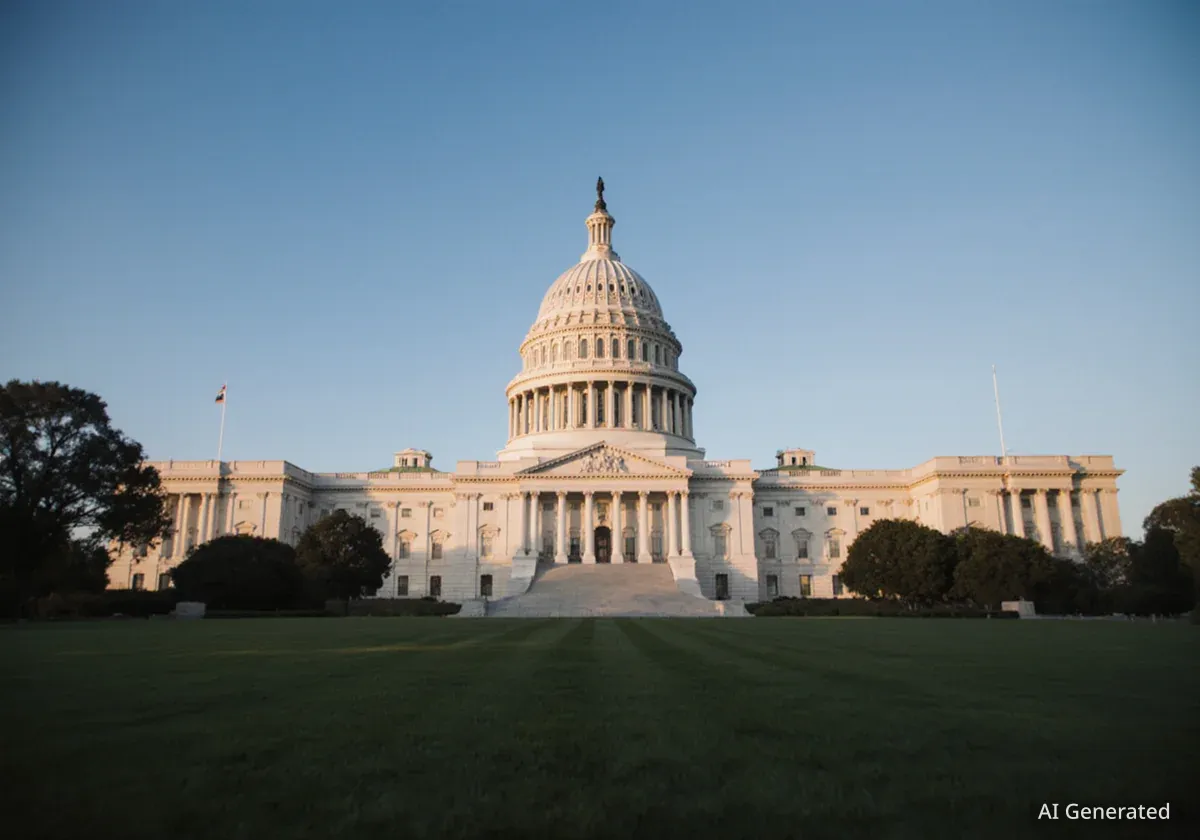Nevada lawmakers are currently examining a proposal for what could be the state's largest-ever public subsidy, a $1.65 billion tax credit package aimed at attracting major film productions. The bill, known as Assembly Bill 5, has ignited a sharp debate, with much of the controversy centered on where the required private investment will actually take place.
While the plan involves a new 31-acre film studio, critics are questioning a provision that could allow up to half of the necessary $1.8 billion in private capital investment to be directed towards Downtown Summerlin, an existing retail and office complex located miles from the proposed studio site.
Key Takeaways
- Nevada is considering a $1.65 billion transferable tax credit over 15 years to boost its film industry.
- The bill requires $1.8 billion in private capital investment to unlock the full tax credits.
- A major point of contention is that up to half of this investment could be made at Downtown Summerlin, two miles away from the proposed 31-acre studio.
- Opponents argue the bill benefits real estate developer Howard Hughes Holdings as much as the film industry.
- The bill advanced from a key committee on a 9-5 vote after significant amendments were added to address concerns.
A Subsidy of Historic Proportions
The proposed legislation, debated during a special session, would offer substantial financial incentives to production companies. Major studios like Sony Entertainment and Warner Brothers Discovery could earn up to $120 million each in transferable tax credits for filming in the state. These credits can be sold to other large corporations, which can then apply them against their own state tax liabilities, such as gaming or business taxes.
The core of the debate emerged during an Assembly Committee on Jobs meeting, where lawmakers scrutinized the bill's structure. Opponents have characterized the plan as a corporate giveaway, not just to Hollywood studios but also to the project's developer, Howard Hughes Holdings, and the large companies that would ultimately purchase the tax credits.
Understanding Transferable Tax Credits
Transferable tax credits are a common tool used by states to incentivize specific industries. A company that earns a credit but doesn't have enough state tax liability to use it can sell the credit to another company. This creates a cash-flow benefit for the original recipient and a tax reduction for the buyer.
The Downtown Summerlin Controversy
A significant portion of the legislative hearing focused on the geographic scope of the required investment. The proposed film studio and an accompanying special entertainment district are planned for a 31-acre site at the corner of Town Center Drive and Flamingo Road.
However, the bill allows for development at Downtown Summerlin—a large, established commercial area two miles away—to count toward the $1.8 billion investment threshold. This raised questions from lawmakers, including Assemblymember Gregory Koenig, who pointed out the vast difference between the undeveloped studio site and the existing retail hub.
Matt Walker, representing Howard Hughes Holdings, defended the inclusion of Downtown Summerlin. He explained that the studio's economic impact is expected to be larger than what the 31-acre site can accommodate. He stated that associated developments, such as hotels and office space for businesses connected to the studio, would be necessary.
"We need to prove to the GOED board, through the proactive approval, that there is a concrete nexus between that development at Downtown Summerlin and the studios," Walker said. "It’s not as if we just build a new office building and call it connected."
Despite this assurance, the provision remains a central point of criticism for those who believe the bill unfairly benefits an existing real estate portfolio.
By the Numbers: AB5 Proposal
- $1.65 Billion: Total potential transferable tax credits over 15 years.
- $1.8 Billion: Required private capital investment to trigger the credits.
- 31 Acres: The size of the proposed film studio and entertainment district site.
- 2 Miles: The distance separating the studio site from Downtown Summerlin.
Amendments Aim to Address Concerns
In response to the growing opposition, a lengthy amendment was adopted by the Assembly committee before the bill was advanced on a 9-5 vote. The changes were clearly designed to mitigate some of the most pointed criticisms.
Key changes introduced in the amendment include:
- A ban on gaming establishments within the project's entertainment district.
- A directive to divert the majority of the room tax generated in the district to a fund for retired state employees' medical expenses.
- Expanded disclosure requirements for companies involved in the project.
Changes to Diversity Requirements
The amendment also altered provisions related to diversity in hiring. The new language requires production companies to submit a general "workforce plan" with stated goals. This replaced a previous version of the bill that included specific diversity targets for various job categories within a production.
This particular change drew criticism from Assemblymember Selena Torres Fossett, who voted against the bill. She characterized the new language as a "watering down" of the original intent, expressing concern that it could lead to diversity hiring being concentrated in lower-paying positions.
Walker from Howard Hughes described the change as a "compromise" that aligns the bill's diversity requirements with other economic development programs in Nevada.
The Path Forward
After advancing from the committee, Assembly Bill 5 now awaits consideration by the full Assembly. The initial hours of the special session revealed a chamber nearly split on the issue, suggesting a difficult path ahead for the landmark proposal.
As lawmakers continue to weigh the potential economic benefits against the significant public cost and concerns over corporate influence, the future of Nevada's film industry hangs in the balance. The debate over the bill highlights the complex intersection of economic development, public subsidy, and real estate interests in modern state politics.





